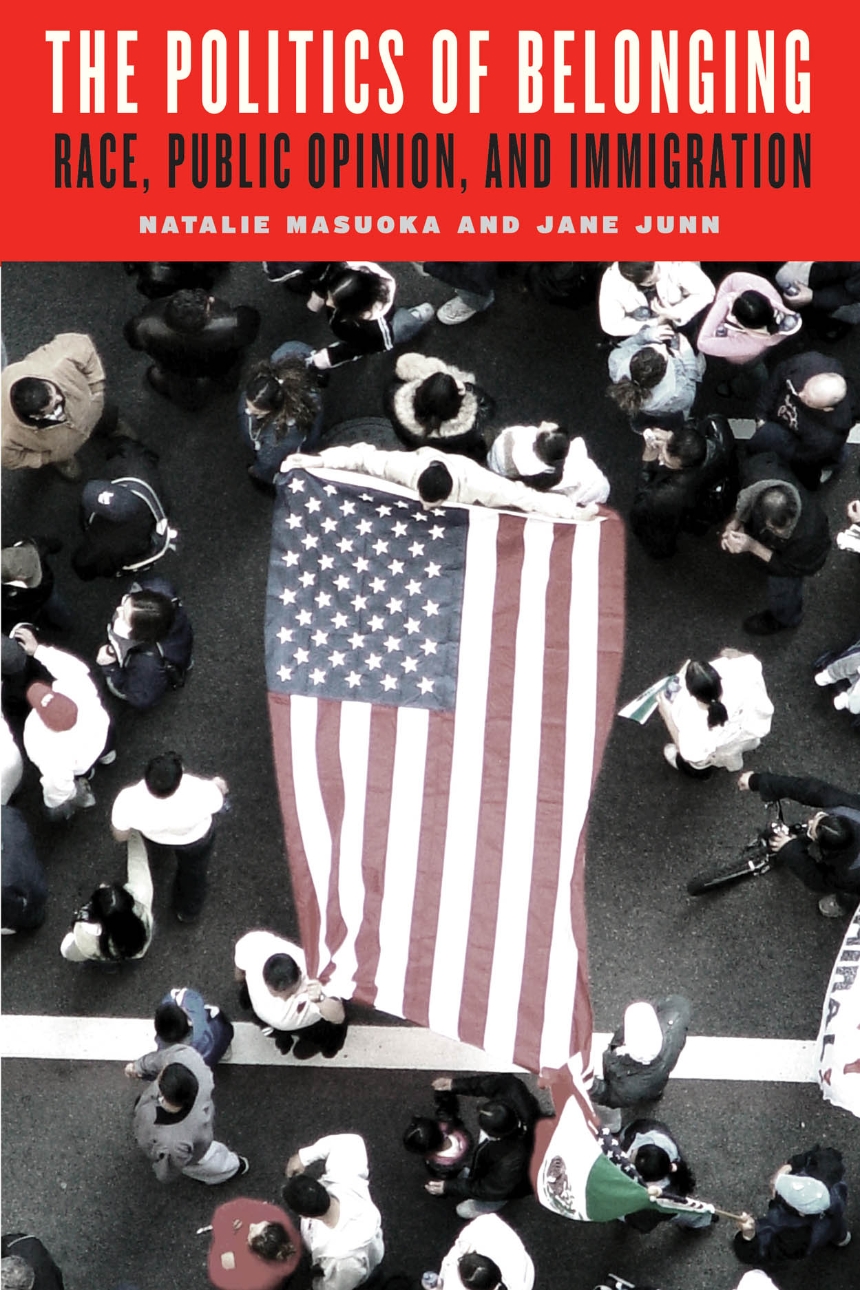The Politics of Belonging
Race, Public Opinion, and Immigration
The United States is once again experiencing a major influx of immigrants. Questions about who should be admitted and what benefits should be afforded to new members of the polity are among the most divisive and controversial contemporary political issues.
Using an impressive array of evidence from national surveys, The Politics of Belonging illuminates patterns of public opinion on immigration and explains why Americans hold the attitudes they do. Rather than simply characterizing Americans as either nativist or nonnativist, this book argues that controversies over immigration policy are best understood as questions over political membership and belonging to the nation. The relationship between citizenship, race, and immigration drive the politics of belonging in the United States and represents a dynamism central to understanding patterns of contemporary public opinion on immigration policy. Beginning with a historical analysis, this book documents why this is the case by tracing the development of immigration and naturalization law, institutional practices, and the formation of the American racial hierarchy. Then, through a comparative analysis of public opinion among white, black, Latino, and Asian Americans, it identifies and tests the critical moderating role of racial categorization and group identity on variation in public opinion on immigration.
272 pages | 16 figures, 15 tables | 6 x 9 | © 2013
Chicago Studies in American Politics
Political Science: American Government and Politics, Race and Politics
Sociology: Social Change, Social Movements, Political Sociology
Reviews
Table of Contents
Acknowledgments
Introduction: Conditional Welcome
Chapter 1 Public Opinion through a Racial Prism
Chapter 2 Development of the American Racial Hierarchy: Race, Immigration, and Citizenship
Chapter 3 The Pictures in Our Heads: The Content and Application of Racial Stereotypes
Chapter 4 Perceptions of Belonging: Race and Group Membership
Chapter 5 The Racial Prism of Group Identity: Antecedents to Attitudes on Immigration
Chapter 6 Framing Immigration: “Illegality” and the Role of Political Communication
Conclusion: The Politics of Belonging and the Future of US Immigration Policy
Notes
References
Index
References
Index
